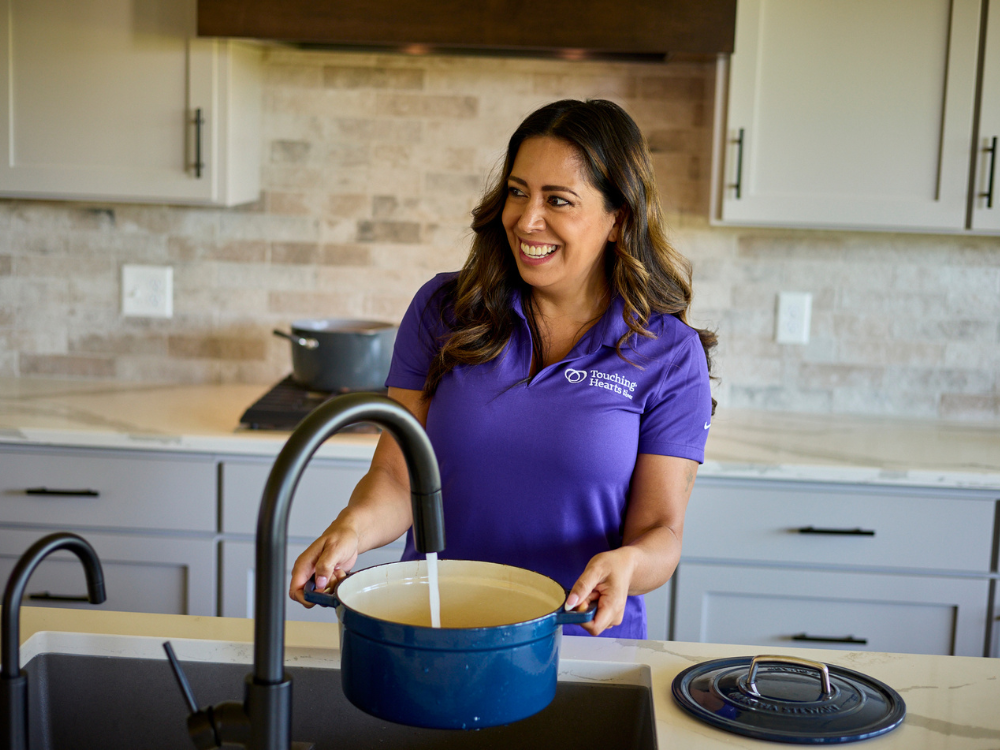Facing Restlessness at the End of Life: How an End-of-Life Doula Can Help You and Your Loved Ones
As the end of life draws near, the body, mind, and spirit begin a profound process of transition. For some, this process is calm and quiet. For others, it can be unsettling, marked by restlessness, confusion, or emotional distress. If you or your loved one is experiencing this, you’re not alone—and there is gentle, compassionate support available.
One kind of support comes from an end-of-life doula—someone who walks beside individuals and families during the dying process, offering presence, peace, and practical help. In moments of terminal restlessness or agitation, their role can be especially comforting.
What Is Terminal Agitation?
Near the end of life, some people experience what’s called terminal agitation—a type of mental and physical restlessness that may show up as:
- Pacing, fidgeting, or pulling at clothes or bedding
- Confusion, fear, or anxiety
- Repeating words or phrases
- Seeing or speaking to people others don’t see
- Difficulty relaxing, even with medication or reassurance
This restlessness can feel distressing—for both the person going through it and for their loved ones. It may be caused by the body’s natural shutdown process, medical factors, or emotional and spiritual concerns.
How an End-of-Life Doula Can Help
Whether you’re the one nearing the end of life or you’re caring for someone who is, an end-of-life doula offers support in a way that is deeply human. They don’t provide medical care, but they offer something just as important: presence, calm, and understanding.
1. Creating a Soothing Environment
A doula helps create a peaceful space that feels safe and comforting. This might include:
- Dimming lights or turning off harsh overhead lighting
- Playing soft, familiar music or nature sounds
- Offering calming scents like lavender
- Using gentle touch, soft blankets, or familiar objects
These small changes can reduce overstimulation and bring a sense of ease.
2. Providing Emotional Support
Sometimes restlessness is a sign of inner worry or unresolved feelings. A doula listens without judgment and without trying to “fix” anything. They might sit quietly with you, hold your hand, or speak softly—just being there, so you’re not alone.
For caregivers, they offer reassurance and grounding: helping you stay calm, breathe deeply, and understand what’s happening.
3. Guiding Final Conversations
There may still be things left unsaid—words of love, forgiveness, or closure. If the person who is dying is able and willing, a doula can gently guide these conversations or rituals. And when words aren’t possible, they can help create space for silent connection or symbolic gestures that bring peace.
4. Supporting the Caregiver’s Heart
Watching someone you love experience agitation or distress can be heartbreaking. An end-of-life doula offers not just support for the person dying, but also for you—the caregiver. They may:
- Explain what’s happening in gentle, understandable terms
- Offer practical tools like hand-holding techniques, breathwork, or guided imagery
- Stay with you when you need a break or rest
- Remind you that what you’re doing is enough, and that love is being felt even if it can’t be spoken
You Are Not Alone
If you or someone you love is experiencing terminal agitation, know that this is a common part of the dying process—and that peace is still possible. The body may be struggling, but the soul is preparing for something bigger. An end-of-life doula can help hold that space with love and presence.
Whether it’s through a quiet moment, a gentle voice, or just someone to sit beside you, the support of a doula can bring comfort when it’s needed most.








